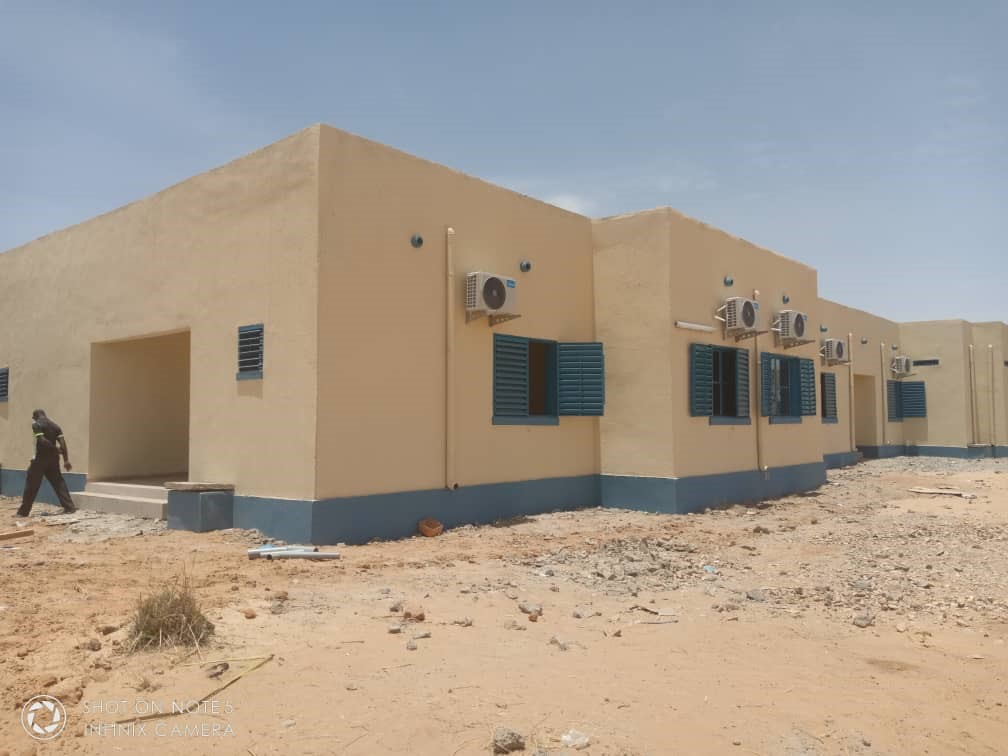An emergency plan for fragile areas in Burkina Faso
For several years now, the countries of the Sahel-Saharan strip have been grappling with a security crisis driven by multifaceted root causes and bearing dramatic consequences for their populations. Since January 2016, Burkina Faso has been subject to attacks by terrorist armed groups (GATs) that initially occurred in the northern part of the country, more precisely in the border regions with Mali and Niger. However, the security crisis gradually spread to other municipalities in the Boucle du Mouhoun, Centre-Nord, Centre-Est and Est regions. From the onset of the crisis, the attacks targeted the defence and security forces as well as symbols of the presence of the Burkinabe state.
In response to these challenges, the government of Burkina Faso adopted the Emergency Plan for the Sahel in Burkina Faso (PUS-BF) in July 2017. This plan aims to help improve the security of people and goods in Burkina Faso. In addition to the security and defence sector, it aims to strengthen the resilience of the populations. This plan is a geographical variation of the National Economic and Social Development Plan (PNDES). It is structured around the law on internal security and its national internal security strategy (SNSI), as well as the sectoral policies of the basic social sectors. The Emergency Plan initially covered the Sahel and North regions, but the Burkinabe government decided to extend the PUS-BF to four other regions (Boucle du Mouhoun, Centre-Nord, Centre-Est, and Est) in June 2019 to address the expanding crisis.
Improving resilience and contributing to the security of populations in vulnerable areas
 In order to respond to this crisis situation, the European Union (EU) is supporting the government of Burkina Faso by providing budgetary assistance for the implementation of the Emergency Plan for the Sahel (PUS) financed through the African Emergency Trust Fund (AETF). This budgetary support that includes a direct assistance to the State budget, helps ensure the security of populations in vulnerable areas and to improve their resilience through better access to basic social services. It implies a stronger role for local actors in the areas concerned. The European Union has increased its support by €30 million, thus providing for a total funding volume of €80 million over three years (2018-2020).
In order to respond to this crisis situation, the European Union (EU) is supporting the government of Burkina Faso by providing budgetary assistance for the implementation of the Emergency Plan for the Sahel (PUS) financed through the African Emergency Trust Fund (AETF). This budgetary support that includes a direct assistance to the State budget, helps ensure the security of populations in vulnerable areas and to improve their resilience through better access to basic social services. It implies a stronger role for local actors in the areas concerned. The European Union has increased its support by €30 million, thus providing for a total funding volume of €80 million over three years (2018-2020).
A multisectoral response to the crisis. Concrete realisations on the ground
Budgetary support to the PUS-BF makes it possible to accompany state stakeholders such as the Ministry of Economy, Finance and Development, the Ministry of Water and Sanitation, the Ministry of Security and the Ministry of Health, as well as the 76 municipalities in the areas concerned. In addition to these institutional partners, the NGO Eau Vive is a key player in strengthening project management and facilitating the development of activities on the ground.
This programme has led to concrete achievements in several areas, for the direct benefit of the populations. In the field of water and sanitation , the support provided enabled the drilling of 122 boreholes equipped with human-powered pumps and 8 simplified drinking water supply systems. The support provided to the security sector targeted the recruitment and training of the Defence and Security Forces (FDS), the construction and rehabilitation of police stations and gendarmerie posts, and the creation of fully equipped mobile brigades. Lastly, financial transfers to the 76 municipalities in the area concerned have been increased, enabling local actors to provide community-based, close-to-customer services to the populations.

